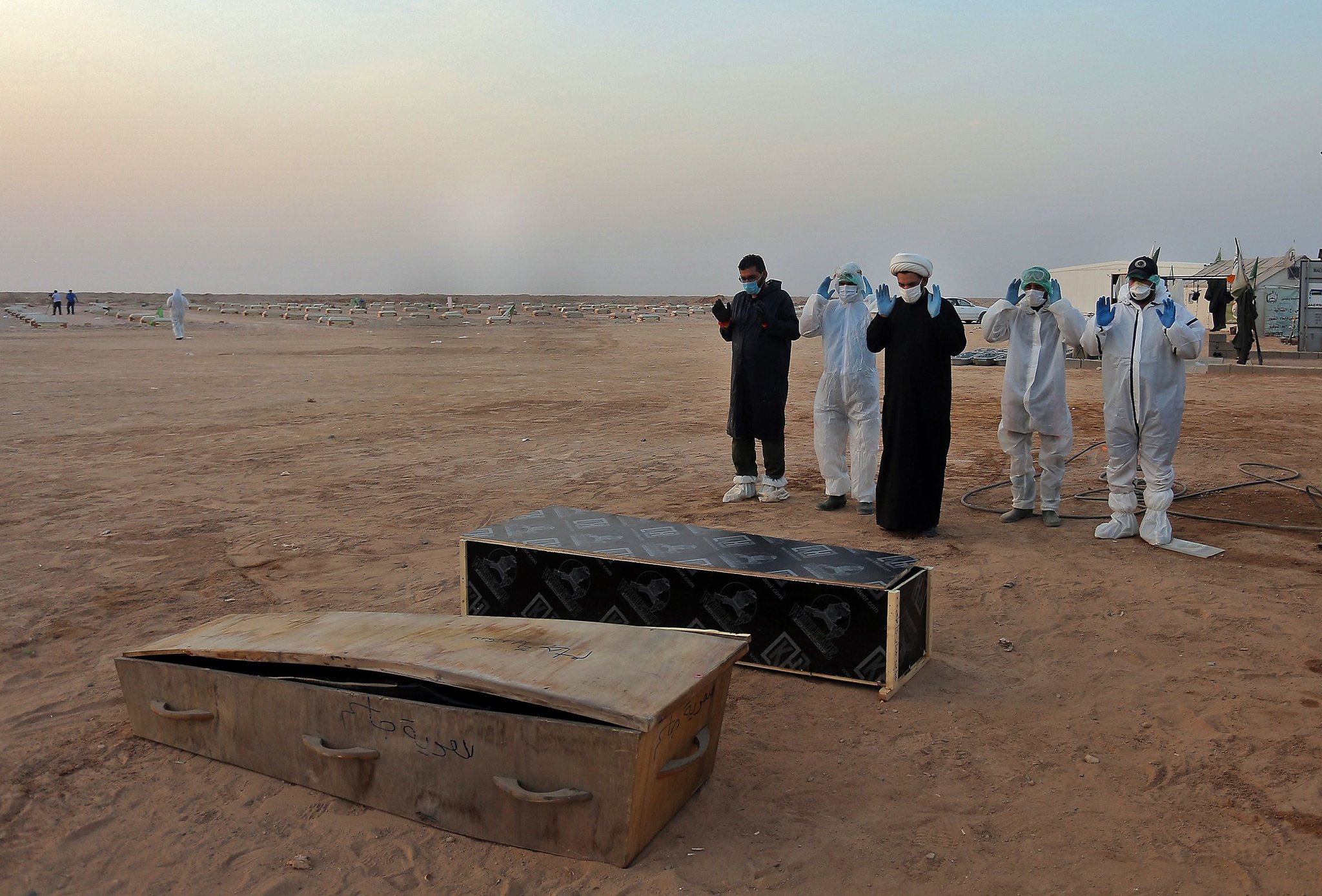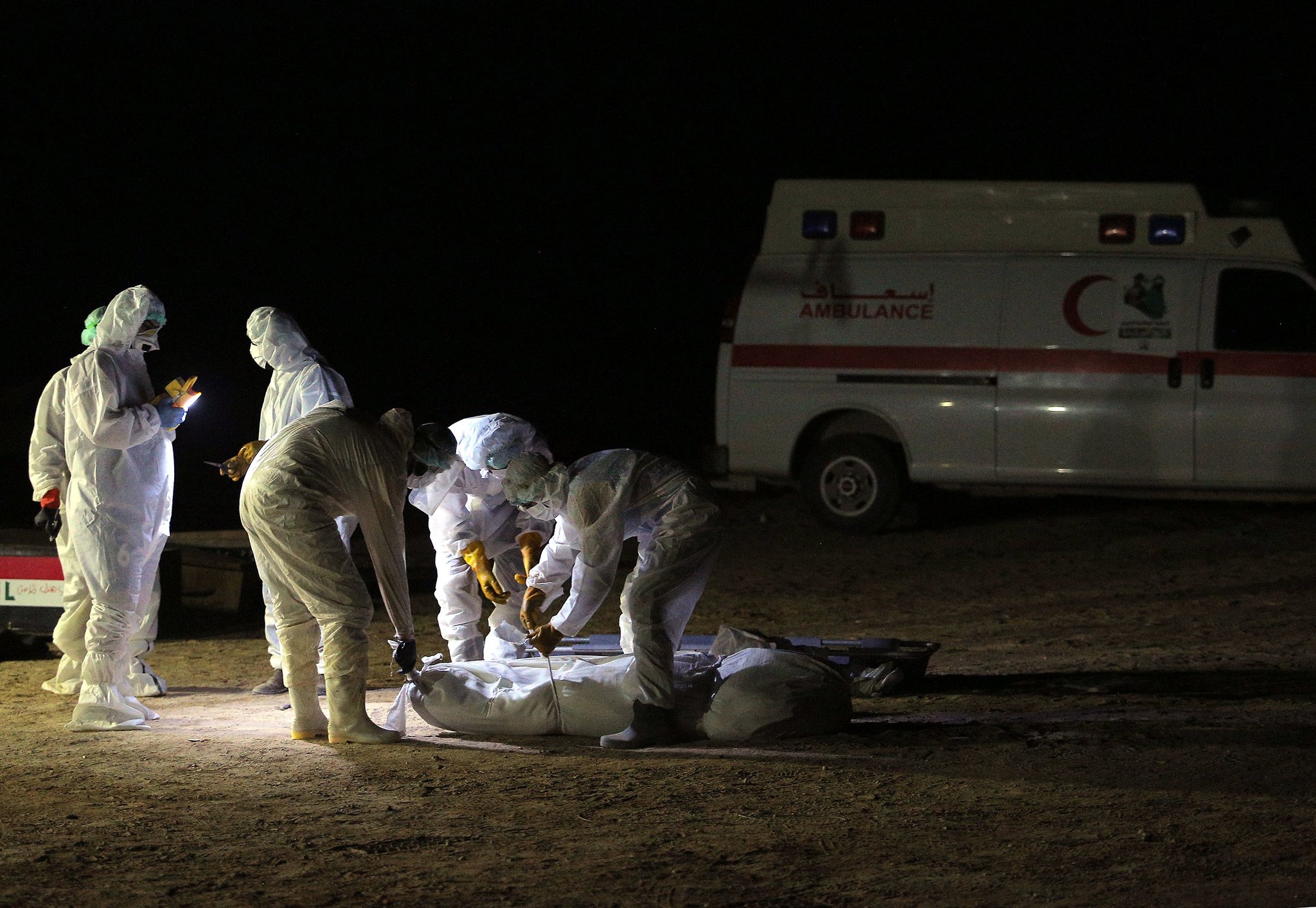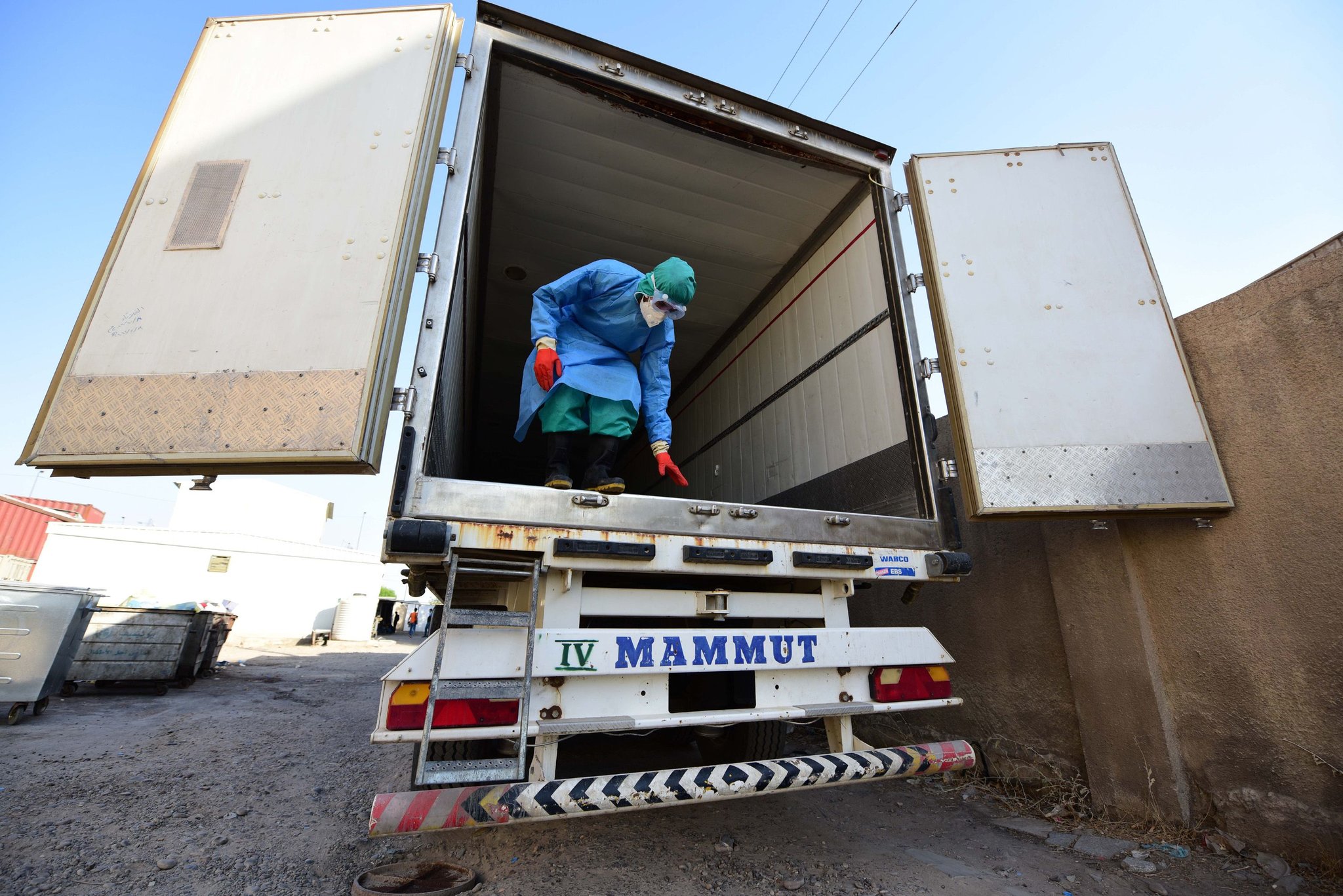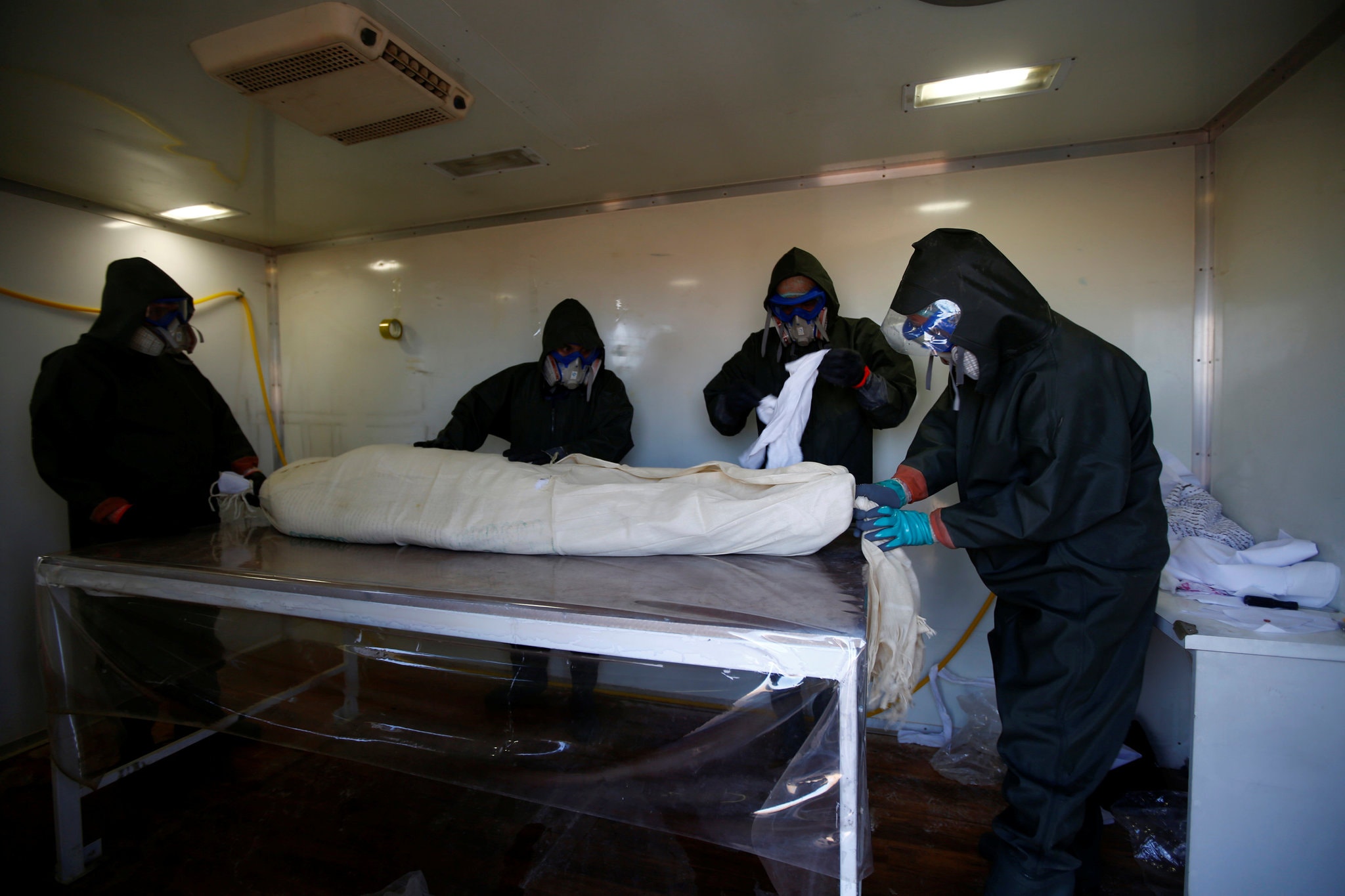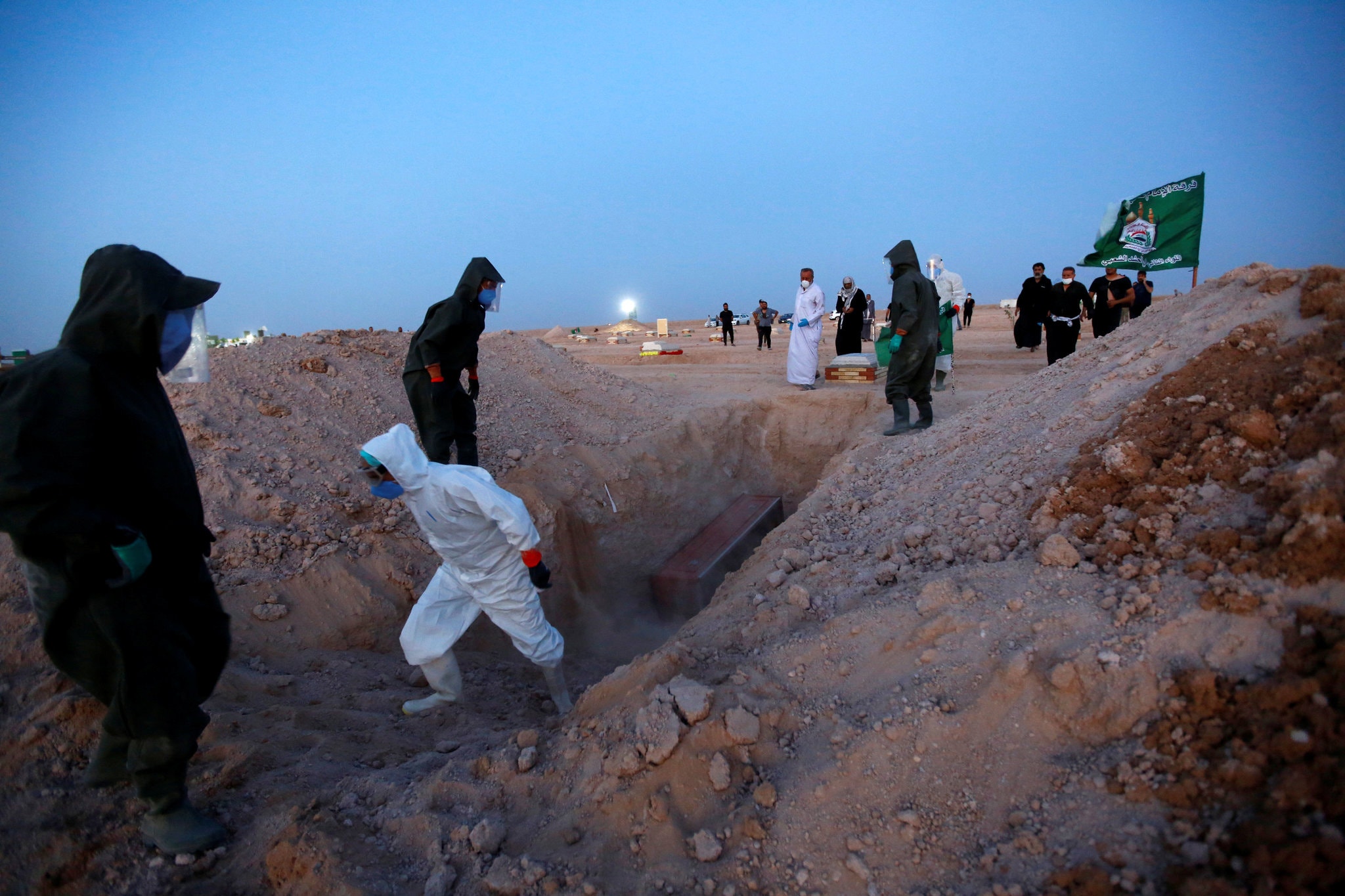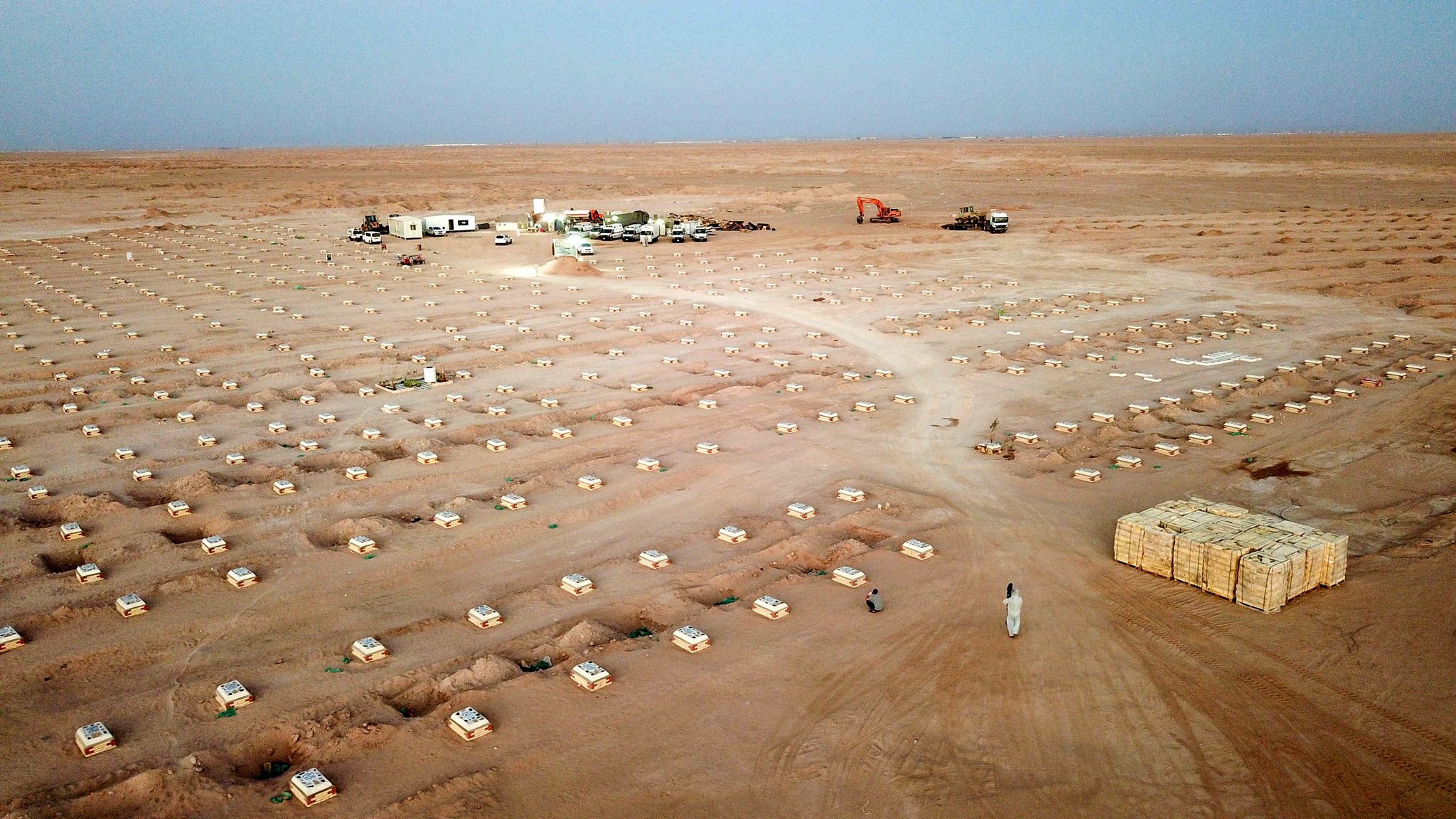None of Iraq’s existing graveyards wanted the bodies of Covid-19 patients. So Shiite leaders created a burial ground for them that is also open to Sunnis and Christians, according to Nytimes.com.
Ground was broken on this cemetery in southern Iraq four months ago, and already there are more than 3,200 graves. The backhoes work every night to make new furrows in the sandy soil.
In Islam, burial should be done quickly, if possible within 24 hours of death. The body should be ritually cleansed by professional washers, but the family can be present — men at the washing of a male relative, women of a female one.
In pre-Covid times, Shiite Muslims, no matter where they were from in Iraq, would then carry the coffin on their shoulders around the Imam Ali shrine in the pilgrim city of Najaf and pray over the body outside the shrine’s doors. Then they would take the coffin to the Wadi-Al-Salam cemetery, one of the largest and oldest in the world, for burial.
Sunnis would hold their funerals close to home and then take the body to a nearby graveyard, where, as in Shiism, the grave diggers would lift the deceased’s white-shrouded body from the coffin and lay it in the earth, with the head facing Mecca.
“They are burying their relative not in the usual way, and this makes them very sad,” said Tawfik Mahdi, a cleric from Najaf, who is on hand to try to comfort families. “Our role is to reduce their grief and say, ‘Don’t worry, this pandemic happened and you cannot be close to them like you were before, but we will pray for you.’”
The story of how the cemetery came into existence starts when the first coronavirus patients began to die in March in Baghdad.
The religious and health authorities were unprepared for the sense of stigma that having the disease carried, as well as the fear that touching the body would risk contagion. Cemeteries refused to take those who had died of Covid-19 because people whose relatives had not died of the virus felt it was a stigma to be buried next to someone who had.
While scientists have not established how long the virus survives in a person who has died of it, they believe it might linger for as much as a few hours and could be on materials used in wrapping and transporting bodies.
“I began to see these scenes on TV — I still remember them — there were seven or eight bodies thrown outside a hospital morgue and they left them there,” recalled Sheikh Tahir Al-Khaqani, who is head of the "Imam Ali Combat Division", one of the factions under the Popular Mobilization Units created to fight the ISIS terror group.
The idea came to Mr. Al-Khaqani that the solution was a new graveyard just for those who died of the coronavirus. He conferred with the moderate, inclusive senior Shiite cleric, Grand Ayatollah Ali al-Sistani, governor of Najaf, and with the leader of the Shia Endowment, which is in charge of all Shiite financial and real estate matters.
Within days, they had a 1,500-acre patch of ground 20 miles from the city of Najaf, allocated for the burials.
The Imam Ali combat division volunteered to run the cemetery. Its medical teams took on the job of receiving the dead, disinfecting the body bags in which they arrived and then washing the deceased.
Other contingents took responsibility for the digging and burials. Some took on the role of guides to help family members when they come to find their relative’s grave among the thousands stretching out across the desert. Family visits are permitted 10 days after burial.
Under orders from the grand ayatollah, although the graveyard is run by Shiites, it welcomes everyone regardless of faith or sect and burial is free.
Mohammed Qasim, a date and vegetable farmer from near Baghdad, said those digging the graves, attending to the washing and pronouncing the last rites are “human angels.”
For Ari Sahak Dirthal, 33, an Armenian Christian, his father’s burial on July 1 is still a source of pain. “I immediately went to the Armenian Orthodox church in Baghdad because I knew that my father wanted to be buried there, and so I was surprised when they said we cannot bury him here,” he said.
They directed him to the coronavirus cemetery in the holy city of Najaf. On the way, he frantically made calls to find out what prayers to say. It still cuts to the quick, he said, that no one from the Armenian Orthodox Church came with him.
Mr. Dirthal said he was welcomed by the sheikhs in charge of the cemetery, who told him his father could be buried anywhere.
“I just said, ‘I want the grave of my father to be away from the others,’ and indeed he was buried one kilometer away from the graves of the Muslims,” Mr. Dirthal said.
The Shiite grave diggers did their best for his father, he said, sending him a video of the burial, with one of the Shiite medical staff wearing protective gear and making the sign of the cross over his father’s body.
For Sunnis, the rituals are more familiar, and so the farewells have been easier — and less lonely. Hundreds of Sunnis are buried here. But a burial far from home is still hard.
The main Sunni cemetery in Baghdad would not accept the body of the father of Al-Murtada Ahmed Jasmin, even though that is where all his family members had been buried.
“All the way driving to the new Wadi Al-Salam cemetery, I spoke with my father and said to him, ‘Please forgive me I could not do your will and bury you with our family,’” said Mr. Jasmin, 22.
But after he arrived at the cemetery, “all of the tiredness and anger went away because I found a typical cemetery where I could visit my father at any time,” he said. “I felt great relief and said to myself that God loves my father when he chose this place for his burial.”
The cemetery entrance is nothing more than a metal skeleton frame in the shape of a grand mosque door. Beyond stretches the desert, glittering in the sun, with row after row after row of graves, each with the words of the Quran: “This is the will of Allah.”
As the sun set on the evening earlier this month, more families arrived along with the ambulances. Burials take place from 6 p.m. until the first prayers of the morning.
Fathers, mothers, brothers, sisters, sons and daughters stood at the edge of the cemetery. A rope kept them from entering to ensure that they stay far from the bodies and any live infection. Some raised their arms to the sky and cried their loss.
A middle-aged brother and sister stood together in the hot night. The wind blew the woman’s abaya around her in swirls and the man raised his arms to the sky.
“I give you to the care of Imam Ali,” he said to his dead father, referring to a founding figure of Shiite Islam.
His sister wept into the wind.

